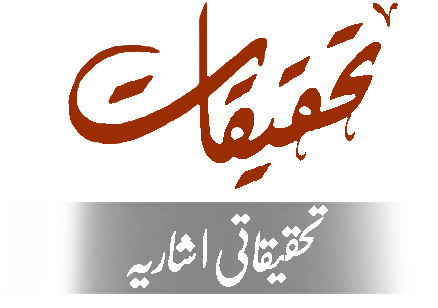Conceptions of “Masculinity” in Pashto Folklore: Contextualizing Antonio Gramsci’s Theory of Cultural Hegemony
تلخیص
This paper tends to investigate themes of masculinities in the preview of
patriarchal structures of Pashtun society. The author has used a prism of the
Italian-Marxist dissent and intellectual, Antonio Gramsci‟s (1891-1937)
reckoned theory of Cultural Hegemony. This theory a post Marxist critique
of the cultural hegemony of the ruling classes that are adopted by the
oppressed social and political classes as natural, inevitable, and a matter of
the common sense. While unpacking the indicators of this theory, and
developing an analytical framework which contains some indicators, the
author has directly plunged into the main course that is the depiction of the
peculiar hegemonic masculinity in the Pashto folk genres. In this
connection historical construction of hegemonic masculinities in the
Pashtun society is explored, and the nexus of war, violence, exclusion and
masculinity is established through literature review. Pashto folk poetry and
proverbs are particularly analyzed to know the patterns inherently consist
in the oral text performances uttered in the peculiar cultural milieu of
Pashtunwali. The etymological roots of womanhood are probed in Pashtu
language which like other languages of the world has peculiar gendered
otherness of women. The study of Tappa, Kakari Ghari, Da Attan Narey
and the bridal laments called “Angai” are particularly analyzed to unveil
the structures that hold up the paranoia of men hegemony as naturally
constructed phenomenon. Analysis of the poetic genres is carried out in the
context of gender studies and critical discourse analysis, which strive to
analyze discourse beyond the symptomatic levels
Dr. Barkat Shah Kakar. (2019) په پښتو لوک داستانونو کې د "نارینه" تصورونه: انټونیو ته اشاره کول د ګرمسي د کلتوري واکمنۍ تیوري, Takatoo Journal, Volume 11, Issue 21.
-
Views
832 -
Downloads
89


